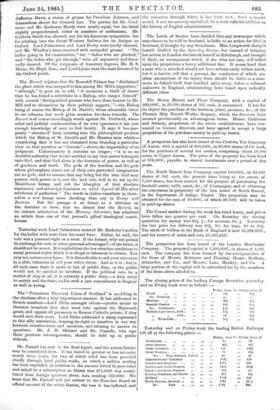Yesterday week Lord Palmerston resisted Mr. Berkeley's motion Tor the
ballot with more than his usual force. Either, he said, the vote was a personal right or a trust. If the former, why not permit its exchange for cash or other personal advantages?—if the latter, it should not be secret. It is replied that the law attaches conditions to many personal rights which it is illegal or infamous to violate. You may not torture your horse. It is discreditable to sell your vote even in a club, infamous to sell your wife's virtue. And so it is ; but in all such cases there is more or less of public duty, or the public -would not be entitled to interfere. If the political vote be a matter of duty at all, it is certainly a public duty,.—a duty owed to society and the State, and in such a case concealment is illogical as well as wrong.






























 Previous page
Previous page